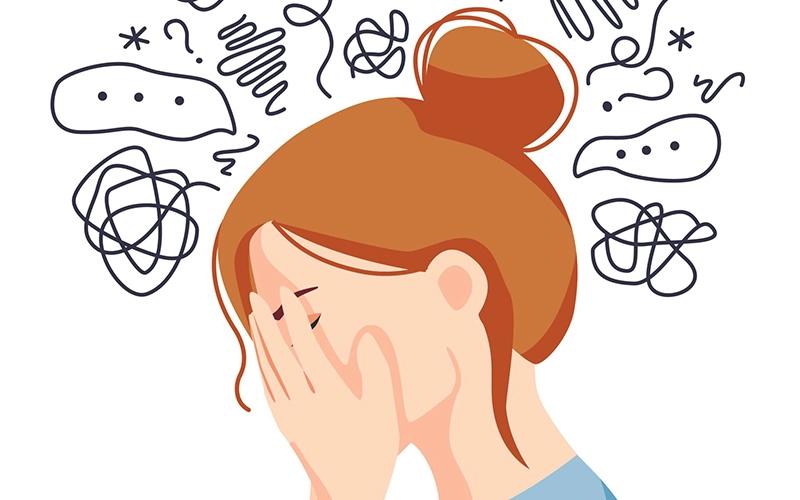Understanding Depression, Anxiety, and Stress: The Importance of Measuring Mental Health
In today’s fast-paced world, mental health has become a crucial aspect of our overall well-being. Among the various mental health challenges, depression, anxiety, and stress are the most common and can significantly impact our daily lives. Understanding these conditions and their effects is essential for maintaining a healthy and balanced life. This article delves into the nature of depression, anxiety, and stress, and highlights the importance of measuring these conditions to promote better mental health.
What is Depression?
Depression is more than just feeling sad or having a bad day. It is a serious mental health condition that affects how you feel, think, and handle daily activities. Symptoms of depression can include persistent sadness, loss of interest in activities once enjoyed, changes in appetite and sleep patterns, fatigue, and difficulty concentrating. Depression can vary in severity, from mild to severe, and can significantly impair one’s ability to function.
What is Anxiety?
Anxiety is a natural response to stress and can be beneficial in some situations. However, when anxiety becomes excessive and persistent, it can interfere with daily life. Anxiety disorders are characterized by intense, excessive, and prolonged worry and fear about everyday situations. Symptoms can include restlessness, rapid heartbeat, sweating, trembling, and difficulty concentrating. Like depression, anxiety can range from mild to severe and can significantly impact one’s quality of life.
What is Stress?
Stress is the body’s response to any demand or challenge. While a certain level of stress can be motivating and even beneficial, chronic stress can have detrimental effects on both physical and mental health. Symptoms of stress can include headaches, muscle tension, fatigue, irritability, and difficulty sleeping. Chronic stress can lead to more serious health problems, such as heart disease, high blood pressure, and mental health disorders like depression and anxiety.
The Interconnection of Depression, Anxiety, and Stress
Depression, anxiety, and stress are often interconnected and can influence each other. For example, chronic stress can lead to anxiety, which can then contribute to the development of depression. Similarly, someone with depression may experience heightened levels of stress and anxiety. Understanding the interplay between these conditions is crucial for effective management and treatment.
The Importance of Measuring Mental Health
Measuring mental health is essential for several reasons:
- Early Detection: Early identification of symptoms can lead to timely intervention and treatment, preventing the progression of mental health conditions.
- Self-Awareness: Understanding your mental health status can help you become more aware of your emotional and psychological state, enabling you to take proactive steps to improve your well-being.
- Personalized Treatment: Accurate measurement of mental health conditions allows for personalized treatment plans tailored to your specific needs.
- Monitoring Progress: Regular assessment of mental health can help track progress and effectiveness of treatment, allowing for adjustments as needed.
- Reducing Stigma: Measuring and talking about mental health openly can help reduce the stigma associated with mental health conditions, encouraging more people to seek help.
Why You Shoud the Use of theScale
The scale is a valuable tool for measuring mental health. It consists of 21 questions that assess the severity of depression, anxiety, and stress. Here are some reasons why you should consider taking the scale:
- Comprehensive Assessment: The scale provides a thorough evaluation of your mental health, covering three critical areas: depression, anxiety, and stress.
- Quick and Easy: The questionnaire is quick to complete, taking only a few minutes of your time. Despite its brevity, it offers valuable insights into your mental health.
- No Right or Wrong Answers: The scale is designed to help you understand your mental health better. There are no right or wrong answers, so you can answer honestly without any pressure.
- Confidential and Private: Your responses are confidential and will not be shared with anyone. This ensures a safe space for you to explore your mental health without any concerns about privacy.
- Actionable Insights: The results of the scale provide actionable insights and practical tips to improve your mental health. Whether you need to seek professional help or incorporate self-care practices, the scale offers guidance on the next steps.
Benefits of Using the Scale
Taking the scale can offer numerous benefits:
- Self-Discovery: Gain a deeper understanding of your emotional and psychological state, helping you identify areas that need attention.
- Proactive Management: By identifying symptoms early, you can take proactive steps to manage your mental health, preventing more severe conditions.
- Improved Well-Being: Understanding and addressing your mental health can lead to improved overall well-being, better relationships, and enhanced quality of life.
- Empowerment: Taking control of your mental health empowers you to make informed decisions about your well-being and seek the support you need.
- Support and Resources: The scale can guide you towards appropriate resources and support, whether it’s professional help, self-help strategies, or community resources.
Conclusion
Depression, anxiety, and stress are common mental health conditions that can significantly impact your life. Understanding these conditions and their effects is crucial for maintaining a healthy and balanced life. Measuring your mental health using tools like the scale can provide valuable insights and guide you towards better mental health. By taking the test, you can gain a deeper understanding of your emotional and psychological state, take proactive steps to manage your mental health, and improve your overall well-being. Start your journey to better mental health today and unlock the potential of a healthier, happier you.



